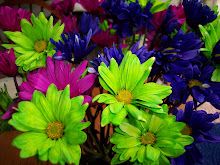 Stanislaw Lem's autobiography - well, it's not so much an autobiography as a ramble through the chambers of his childhood. Oddly enough, there are more objects than people in these chambers; when Lem reminisces about his father, it is his father's books and medical instruments over which he waxes sentimental, rather than shared moments of intimacy. The opening of the last chapter is telling:
Stanislaw Lem's autobiography - well, it's not so much an autobiography as a ramble through the chambers of his childhood. Oddly enough, there are more objects than people in these chambers; when Lem reminisces about his father, it is his father's books and medical instruments over which he waxes sentimental, rather than shared moments of intimacy. The opening of the last chapter is telling:What is it about the objects and cobblestones surrounding us in childhood that is so magical, so irreplaceable? Whence comes their demand that after the destruction of war and with them piled in rubbish heaps, I testify to their existence? Not many years after the idyllic time presented here, inanimate things were envied their permanence, for day by day people were taken from their midst, and suddenly the things were orphaned, the chairs, canes and knickknacks abandoned and monstrously useless. As if objects were superior to the living, hardier than they, less vulnerable to the catastrophes of time. As if liberated from their owners, they had gained force and expression - consider the baby carriages and wash basins on the barricades, the eyeglasses there was no one to look through, the piles of letters stepped on. Although in the landscape of war they gained the power of eerie signs, I never held that against them. I believed in their innocence.
This passage resonated with me, particularly because I read it during the time that my class was discussing the Buddhist concept of nonattachment.
I thoroughly enjoyed every bit of this all-too-brief book, with the exception of chunks of the penultimate chapter, in which Lem descends into a morass of tedious deconstructionism from which he emerges at the last moment, just before the reader - at least, this reader - is about to call it quits. The rest of the book is disarmingly charming and frank.
 Ian Sansom's The Case of the Missing Books: A Mobile Library Mystery was a complete surprise from beginning to end. The beginning was unwrapping it - it was a "spring break" gift from my friend S, blessings upon her. I'd never heard of it, so that made it an extra-special surprise: new author, hurray! It begins,
Ian Sansom's The Case of the Missing Books: A Mobile Library Mystery was a complete surprise from beginning to end. The beginning was unwrapping it - it was a "spring break" gift from my friend S, blessings upon her. I'd never heard of it, so that made it an extra-special surprise: new author, hurray! It begins,No. No, no, no, no, no.
Interesting way to begin, no? ;-) The protagonist is a nebbishy librarian from London named Israel Armstrong. He comes to Tumdrum, Ireland to take a new position, only to discover that 1) the library has been permanently closed; 2) they want him instead to drive a bookmobile; and 3) someone has stolen all 15,000 of the books. He's Jewish (every time he mentions Hanukkah, someone says "Bless you") and he's a vegetarian (which means, in Tumdrum, that pretty much all there is for him to eat is scones). He's from London, which means he can't drive worth anything.
It's a very funny, very Irish book, quite cleverly and entertainingly written. And now I need to read everything else Sansom has written, thank you very much!
 Julie Kenner's Demon-hunting soccer mom series is a hoot. Sort of like Buffy the Vampire slayer, only I enjoy them, while I find Buffy tedious (has a lot to do with the poor acting, bad scripts and awful special effects). I've now read two of them and can't wait for the next in the series. They're light fluff, so I'm not going to go into more detail than to mention them here - Carpe Demon and California Demon.
Julie Kenner's Demon-hunting soccer mom series is a hoot. Sort of like Buffy the Vampire slayer, only I enjoy them, while I find Buffy tedious (has a lot to do with the poor acting, bad scripts and awful special effects). I've now read two of them and can't wait for the next in the series. They're light fluff, so I'm not going to go into more detail than to mention them here - Carpe Demon and California Demon. Frank Miller has written and illustrated some marvelous graphic novels. I've been wanting to read 300 for a long time, so when I picked it up the other night I was very excited. I read it more quickly than I usually read GNs; I like to savour the art, but there wasn't much here to savour. It felt more like storyboards than graphic art. The layouts were good, but the art itself just didn't "sing" somehow. So unlike the "Sin City" books! I was very disappointed. I hope that the film coming out this Friday will be more interesting.
Frank Miller has written and illustrated some marvelous graphic novels. I've been wanting to read 300 for a long time, so when I picked it up the other night I was very excited. I read it more quickly than I usually read GNs; I like to savour the art, but there wasn't much here to savour. It felt more like storyboards than graphic art. The layouts were good, but the art itself just didn't "sing" somehow. So unlike the "Sin City" books! I was very disappointed. I hope that the film coming out this Friday will be more interesting.Cheers.

